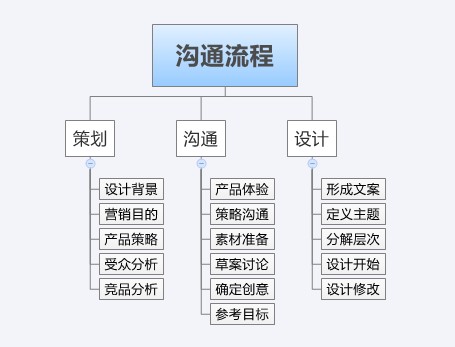萬盛學電腦網 >> 數據庫 >> mysql教程 >> mysql數據庫分表性能優化分析
mysql數據庫分表性能優化分析
我們的項目中有好多不等於的情況。今天寫這篇文章簡單的分析一下怎麼個優化法。
這裡的分表邏輯是根據t_group表的user_name組的個數來分的。
因為這種情況單獨user_name字段上的索引就屬於爛索引。起不了啥名明顯的效果。
1、試驗PROCEDURE.
代碼如下 復制代碼DELIMITER $$
DROP PROCEDURE `t_girl`.`sp_split_table`$$
CREATE PROCEDURE `t_girl`.`sp_split_table`()
BEGIN
declare done int default 0;
declare v_user_name varchar(20) default '';
declare v_table_name varchar(64) default '';
-- Get all users' name.
declare cur1 cursor for select user_name from t_group group by user_name;
-- Deal with error or warnings.
declare continue handler for 1329 set done = 1;
-- Open cursor.
open cur1;
while done <> 1
do
fetch cur1 into v_user_name;
if not done then
-- Get table name.
set v_table_name = concat('t_group_',v_user_name);
-- Create new extra table.
set @stmt = concat('create table ',v_table_name,' like t_group');
prepare s1 from @stmt;
execute s1;
drop prepare s1;
-- Load data into it.
set @stmt = concat('insert into ',v_table_name,' select * from t_group where user_name = ''',v_user_name,'''');
prepare s1 from @stmt;
execute s1;
drop prepare s1;
end if;
end while;
-- Close cursor.
close cur1;
-- Free variable from memory.
set @stmt = NULL;
END$$
DELIMITER ;
2、試驗表。
我們用一個有一千萬條記錄的表來做測試。
mysql> select count(*) from t_group;
+----------+
| count(*) |
+----------+
| 10388608 |
+----------+
1 row in set (0.00 sec)
表結構。
mysql> desc t_group;
+-------------+------------------+------+-----+-------------------+----------------+
| Field | Type | Null | Key | Default | Extra |
+-------------+------------------+------+-----+-------------------+----------------+
| id | int(10) unsigned | NO | PRI | NULL | auto_increment |
| money | decimal(10,2) | NO | | | |
| user_name | varchar(20) | NO | MUL | | |
| create_time | timestamp | NO | | CURRENT_TIMESTAMP | |
+-------------+------------------+------+-----+-------------------+----------------+
4 rows in set (0.00 sec)
索引情況。
mysql> show index from t_group;
+---------+------------+------------------+--------------+-------------+-----------+-------------+----------+--------+------+------------+---------+
| Table | Non_unique | Key_name | Seq_in_index | Column_name | Collation | Cardinality | Sub_part | Packed | Null | Index_type | Comment |
+---------+------------+------------------+--------------+-------------+-----------+-------------+----------+--------+------+------------+---------+
| t_group | 0 | PRIMARY | 1 | id | A | 10388608 | NULL | NULL | | BTREE | |
| t_group | 1 | idx_user_name | 1 | user_name | A | 8 | NULL | NULL | | BTREE | |
| t_group | 1 | idx_combination1 | 1 | user_name | A | 8 | NULL | NULL | | BTREE | |
| t_group | 1 | idx_combination1 | 2 | money | A | 3776 | NULL | NULL | | BTREE | |
+---------+------------+------------------+--------------+-------------+-----------+-------------+----------+--------+------+------------+---------+
4 rows in set (0.00 sec)
PS:
idx_combination1 這個索引是必須的,因為要對user_name來GROUP BY。此時屬於松散索引掃描!當然完了後你可以干掉她。
idx_user_name 這個索引是為了加快單獨執行constant這種類型的查詢。
我們要根據用戶名來分表。
mysql> select user_name from t_group where 1 group by user_name;
+-----------+
| user_name |
+-----------+
| david |
| leo |
| livia |
| lucy |
| sarah |
| simon |
| sony |
| sunny |
+-----------+
8 rows in set (0.00 sec)
所以結果表應該是這樣的。
代碼如下 復制代碼 mysql> show tables like 't_group_%';+------------------------------+
| Tables_in_t_girl (t_group_%) |
+------------------------------+
| t_group_david |
| t_group_leo |
| t_group_livia |
| t_group_lucy |
| t_group_sarah |
| t_group_simon |
| t_group_sony |
| t_group_sunny |
+------------------------------+
8 rows in set (0.00 sec)
3、對比結果。
代碼如下 復制代碼
mysql> select count(*) from t_group where user_name = 'david';
+----------+
| count(*) |
+----------+
| 1298576 |
+----------+
1 row in set (1.71 sec)
執行了將近2秒。
mysql> select count(*) from t_group_david;
+----------+
| count(*) |
+----------+
| 1298576 |
+----------+
1 row in set (0.00 sec)
幾乎是瞬間的。
mysql> select count(*) from t_group where user_name <> 'david';
+----------+
| count(*) |
+----------+
| 9090032 |
+----------+
1 row in set (9.26 sec)
執行了將近10秒,可以想象,這個是實際的項目中是不能忍受的。
mysql> select (select count(*) from t_group) - (select count(*) from t_group_david) as total;
+---------+
| total |
+---------+
| 9090032 |
+---------+
1 row in set (0.00 sec)
幾乎是瞬間的。
我們來看看聚集函數。
對於原表的操作。
+------------+------------+
| min(money) | max(money) |
+------------+------------+
| -6.41 | 500.59 |
+------------+------------+
1 row in set (0.00 sec)
最小,最大值都是FULL INDEX SCAN。所以是瞬間的。
mysql> select sum(money),avg(money) from t_group where user_name = 'david';
+--------------+------------+
| sum(money) | avg(money) |
+--------------+------------+
| 319992383.84 | 246.417910 |
+--------------+------------+
1 row in set (2.15 sec)
其他聚集函數的結果就不是FULL INDEX SCAN了。耗時2.15秒。
對於小表的操作。
代碼如下 復制代碼 mysql> select min(money),max(money) from t_group_david;+------------+------------+
| min(money) | max(money) |
+------------+------------+
| -6.41 | 500.59 |
+------------+------------+
1 row in set (1.50 sec)
最大最小值完全是FULL TABLE SCAN,耗時1.50秒,不劃算。以此看來。
代碼如下 復制代碼 mysql> select sum(money),avg(money) from t_group_david;+--------------+------------+
| sum(money) | avg(money) |
+--------------+------------+
| 319992383.84 | 246.417910 |
+--------------+------------+
1 row in set (1.68 sec)
取得這兩個結果也是花了快2秒,快了一點。
我們來看看這個小表的結構。
代碼如下 復制代碼 mysql> desc t_group_david;+-------------+------------------+------+-----+-------------------+----------------+
| Field | Type | Null | Key | Default | Extra |
+-------------+------------------+------+-----+-------------------+----------------+
| id | int(10) unsigned | NO | PRI | NULL | auto_increment |
| money | decimal(10,2) | NO | | | |
| user_name | varchar(20) | NO | MUL | | |
| create_time | timestamp | NO | | CURRENT_TIMESTAMP | |
+-------------+------------------+------+-----+-------------------+----------------+
4 rows in set (0.00 sec)
明顯的user_name屬性是多余的。那麼就干掉它。
代碼如下 復制代碼 mysql> alter table t_group_david drop user_name;Query OK, 1298576 rows affected (7.58 sec)
Records: 1298576 Duplicates: 0 Warnings: 0
現在來重新對小表運行查詢
代碼如下 復制代碼mysql> select min(money),max(money) from t_group_david;
+------------+------------+
| min(money) | max(money) |
+------------+------------+
| -6.41 | 500.59 |
+------------+------------+
1 row in set (0.00 sec)
此時是瞬間的。
mysql> select sum(money),avg(money) from t_group_david;
+--------------+------------+
| sum(money) | avg(money) |
+--------------+------------+
| 319992383.84 | 246.417910 |
+--------------+------------+
1 row in set (0.94 sec)
這次算是控制在一秒以內了。
mysql> Aborted
小總結一下:分出的小表的屬性盡量越少越好。大膽的去干吧。



